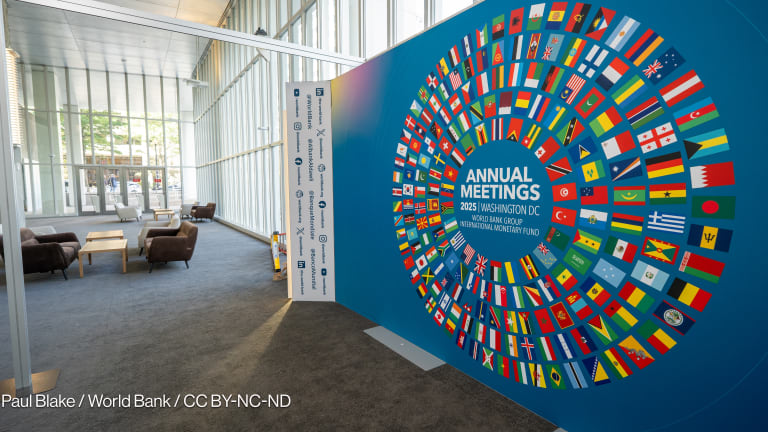
EDITOR’S NOTE: Though the Millennium Development Goals unite the fragmented international development industry, policy reform by which they are implemented is imperative. Private-sector donors should also be included in the policymaking process, contend Wolfensohn Center for Development Senior Fellow Raj M. Desai and Senior Research Associate Joshua Hermias on the eve of a Sept. 25 U.N. meeting in New York. A few excerpts:
Today, UN Secretary-General Ban-Ki Moon will convene a “high-level event” on the Millennium Development Goals (MDGs) in New York. Those attending will have to face the facts: the world is unlikely to meet most goals by 2015. Rising commodity prices threaten those gains that have been made. Donors are failing to meet their promises regarding levels of aid-they would need to double their levels of assistance over the next three years, a highly unlikely prospect. Additionally, for more than half of the world’s poorest countries, there is insufficient information to measure progress against poverty; and even when there is data, it is often both debatable and volatile.
Although the MDGs do provide some coherence to the fragmented international development industry, the rules by which they are implemented and monitored need to be reformed. In particular, the MDG effort would do well to embrace private aid donors.
Currently, private sector participants are relegated to the fringes of the international regime that supports the MDGs. But when it comes to overseeing the implementation of the MDGs at the country level, these players are left out. While international and domestic philanthropies and NGOs now deliver a larger and larger share of total development aid, they are rarely included in development policy-planning meetings that are usually reserved for ministers and official aid agency representatives.
Recipient countries and international organizations alike must develop formal mechanisms to include private sector actors in the development-policy making process. In turn, a seat at the policymaking table could help private players become more accountable.
In exchange for greater involvement in the country-level MDG efforts, private sector actors should develop ways to make their activities more transparent. If recipients could freely choose which aid is channeled through official projects or NGO providers based on this information, a healthy quasi-competition among aid donors might ensue.
Rather than focus on the shortcomings of the MDGs, the fledgling cooperation we will see in New York should be considered an opportunity for longer-term participation by new aid players.
Re-published with permission by the Wolfensohn Center for Development at Brookings. Visit the original article.








